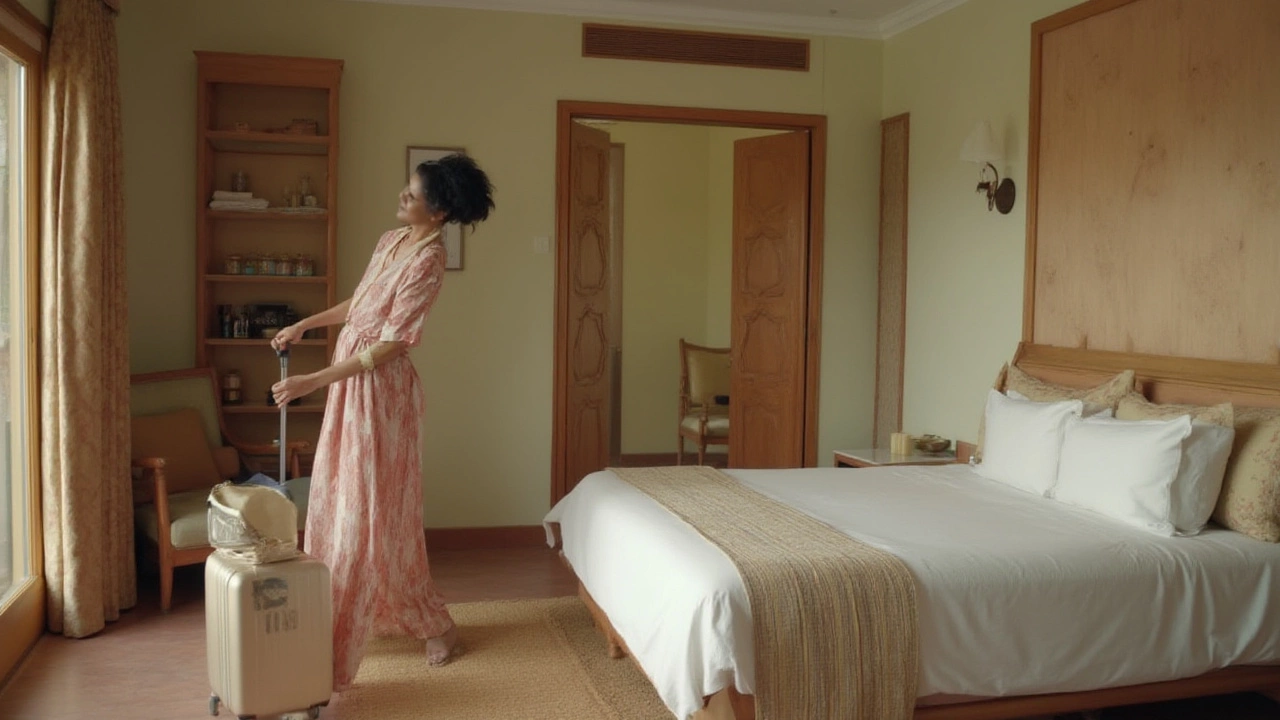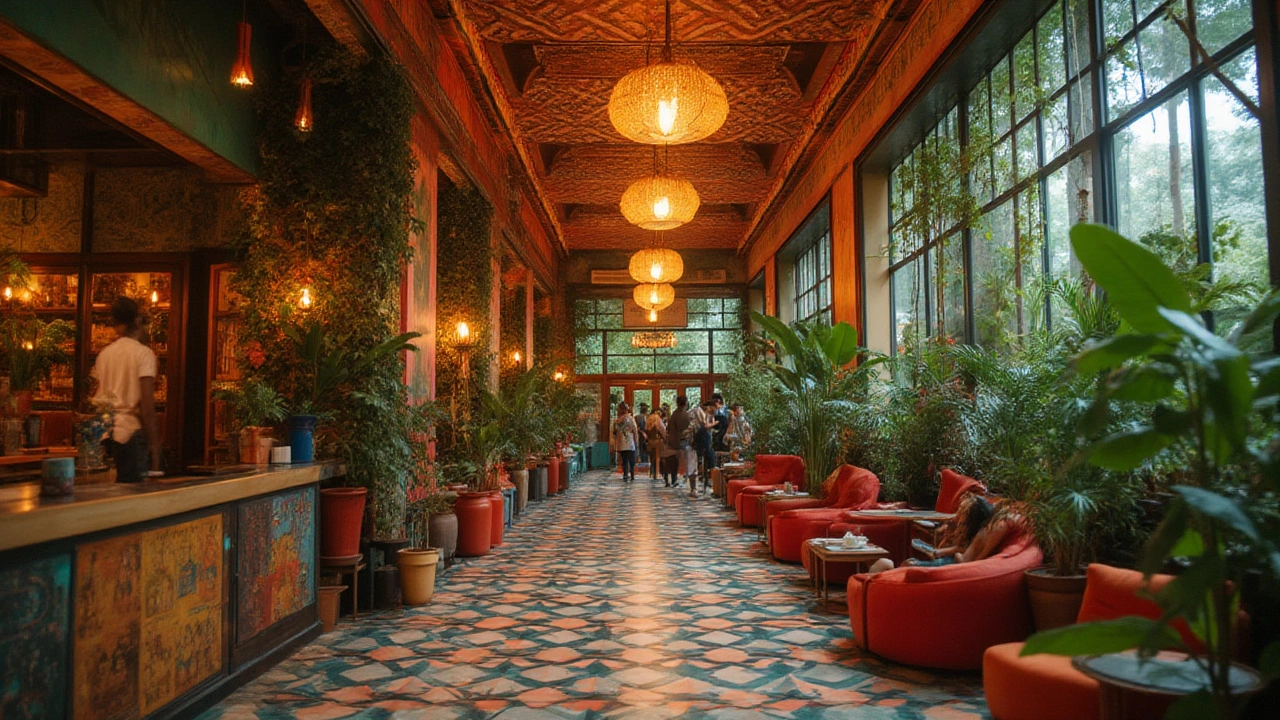One thing nobody expects when booking their first boutique hotel: how different it feels from the cookie-cutter hotel chains that pop up in every major city. You walk in and suddenly realize, nope, you’re not lost in a maze of endless beige corridors. There’s the scent of local flowers at reception. There’s a bartender who remembers your drink after one night. It’s all a little surprising—and oddly personal. But what, exactly, makes a boutique hotel actually a boutique?
Defining the Boutique Hotel
Boutique hotels are small, independent, and packed with personality. The idea really kicked off in the 1980s in cities like New York and London, where travelers wanted something more interesting than giant hotel chains. The standard is fewer than 100 rooms (although you’ll see up to 150 in some city spots), but it’s the attitude that counts.
boutique hotel isn’t just a smaller version of the Sheraton. It’s a place where every detail—furniture, lighting, playlist, even the scent in the hallways—is carefully chosen to build a vibe, not a “brand standard.” Want pink velvet armchairs next to a hand-painted Moroccan tile staircase? That’s normal. The point is intimate, stylish, and a little bit different.
But it doesn’t stop there. Many boutiques are locally owned, not run by a global board. They reflect the personality of their neighborhood, sometimes even the owner’s passions. A boutique hotel in Dublin might proudly serve coffee from a roastery down the street or hang work from young Irish artists in every room. Each feels like a love letter to its location instead of a corporate template stamped on a city block.
The real litmus test? Guests remember boutique hotels long after their trip ends. You won’t mistake the funky little spot in Barcelona for anywhere else in the world. That lingering emotional impression is their calling card.
Key Features That Set Boutique Hotels Apart
If you strip away the fluff, a few things set true boutique hotels apart from the pack. The most obvious: size. Forget thousands of rooms—boutiques tend to max out at 100 rooms or so. That smaller scale makes for quieter halls, shorter lines at breakfast, and a staff-to-guest ratio that means faces (and names) actually stick. It’s not weird if the manager sits down for a chat or remembers your plans for the day.
Next up is design. Forget beige-on-beige. Every boutique has its own distinct soul. Maybe it’s industrial chic with exposed brick and vintage Edison bulbs, or maybe it’s full-on Art Deco glamour, with gold fixtures and moody velvet banquettes. You’ll rarely find the same look twice. Some places lean hard into their city’s story—a Parisian boutique might fill the lobby with retro French movie posters, while one in Tokyo could incorporate minimalist woodwork and Japan-only art installations.
Service also tends to be much more personal. A big chain might hand you a map and point you at the subway. At a boutique, the guy behind the desk will mark the best bakery, scribble the owner’s favorite pub on the margin, and ask what music you like so he can cue up your soundtrack. That’s not just good service; it’s attention to detail you remember.
Let’s not forget the bars and restaurants. A shocking number of good boutique hotels host incredible dining in-house, sometimes Michelin-level. Even if you never leave the building, you’ll get a taste of local flavor, both literally and culturally. Parties, pop-up events, tasting nights, local chef takeovers—all par for the course.
Last, boutiques love storytelling. Maybe it’s a 19th-century townhouse decked out in modern art, or a converted warehouse with original beams and contemporary sculpture. Owners use local history, design, music, and food to build a story you can walk around in. You’ll spot quirky touches everywhere: hand-written welcome notes, record players with curated vinyl, or minibars loaded with local snacks instead of bland generic crisps.

How Boutique Hotels Compare to Other Hotel Types
You might be thinking, “Alright, but isn’t this just a smaller version of a luxury hotel?” Not exactly. While many boutique hotels boast luxury touches—think rainfall showers, designer linens, or gourmet breakfast spreads—they’re less about global status and more about individual experience. Classic luxury hotels tend to focus on grandeur, tradition, and formal service. Boutiques are more informal, creative, and sometimes cheeky.
Versus budget hotels, the difference couldn’t be bigger. Budget hotels keep it basic to save you cash—standard rooms, simple breakfast, little character. Boutiques aim for quality over quantity. You’re paying for the specific vibe, customized service, and sense of place, not just a bed to crash in.
How about all-inclusive or resort hotels? These aim to keep you entertained on huge campuses with endless pools, gyms, scheduled activities, and sometimes, surprisingly, a sense of being “temporarily relocated” from the real world. Boutique hotels often skip spas and sprawling gyms (though you sometimes get a cozy wellness room or tiny pool). Instead, they encourage exploring the area and living like a local, not a resort guest marooned on hotel grounds.
There’s crossover with “design hotels”—a label sometimes used for chain-run properties that try for a boutique feel. But, die-hards will tell you, true boutiques remain independent at heart, with storytelling, personal touches, and local personality built into every corner. The line is blurry, but real regulars instantly know the difference when they walk in.
Why Travelers Pick Boutique Hotels
So why are so many people hooked on boutique hotels? A big draw is individuality. Folks don’t want to wake up in Berlin and feel like they’re still in Dublin. Travelers like spots that feel unique, not like a global chain store selling sleep. Photos of boutique hotel lobbies show up on Instagram, but the real appeal runs deeper: people want their trip to feel personal. Boutique hotels deliver a curated, intimate experience. It’s about surprise, discovery, and a temporary sense of belonging. You remember that hand-painted mural on the bathroom wall, or the rooftop jazz night that was open to just a handful of guests—not 300 cruise tourists.
Another killer feature: location. Many are found in vibrant or historic neighborhoods, not next to a city’s convention center. You step outside and you’re instantly in the thick of local shops, bars, and street life. That makes city exploring less of a chore and more like stepping into a storybook.
Travelers also love the service. It’s hard not to appreciate a place where staff remember your name, know your coffee order, and really care about your plans. At a good boutique, you feel known, not processed. That’s a big deal for solo travelers, couples, and anyone celebrating something special.
For plenty of people, it’s also about design. A hotel room that doubles as inspiration—gorgeous wallpaper, funky local art, or a view over centuries-old cobblestone streets—can make a trip unforgettable.
Don’t forget food and drink. Since more boutiques are run by people deeply connected to the local scene, you’re likely to eat better, whether it’s artisan sourdough at breakfast or innovative cocktails in a candlelit bar at night. Even if you can only stay for one night, you might walk out with recommendations you never would have found on Google.

Tips for Picking the Perfect Boutique Hotel
Ready to give boutiques a go? Here are some insider tips. First, check the location—being walking distance to local haunts is a huge plus. Next, really look at the photos. If every room looks the same, or the décor could easily live in an airport, you might be bumping up against a chain in disguise.
The real standouts have a strong sense of story and identity—maybe even a memorable quirk, like a speakeasy bar in a bookcase or a dedicated dog-pampering service. Read independent reviews and watch out for hints about service; if people rave about staff actually helping out or going above and beyond, you’ve probably found a gem.
Don’t be shy about asking about the hotel’s story or what’s unique about their neighborhood, either. Great boutiques usually love sharing backstory and local tips. You’re more likely to learn about cool art galleries, off-the-map cafés, or secret walking tours from a boutique than from a giant hotel desk.
Think about the amenities you really want. Some boutiques are best for couples (romantic rooftop bathtubs, anyone?) while others cater to families or solo adventurers. If you’re a night owl or social butterfly, look for one with a happening bar or lively lounge. If sleep is sacred, ask for a room away from the action.
Booking directly often gets you perks—later checkout, a free cocktail, or nice room upgrades—since small hotels appreciate direct contact and don’t lose a slice of profit to booking engines. Also, keep an eye on seasonal deals. Boutique hotels, being smaller, can fill up fast but also drop last-minute surprises if you’re flexible with dates.
One last thing: be ready to embrace the unexpected. The point of boutique hotels is to surprise you, so let yourself lean into odd details, funky décor, or unusual events. The best memories from travels often come from these moments—the ones boxed hotels could never invent, and chains can’t copy.
